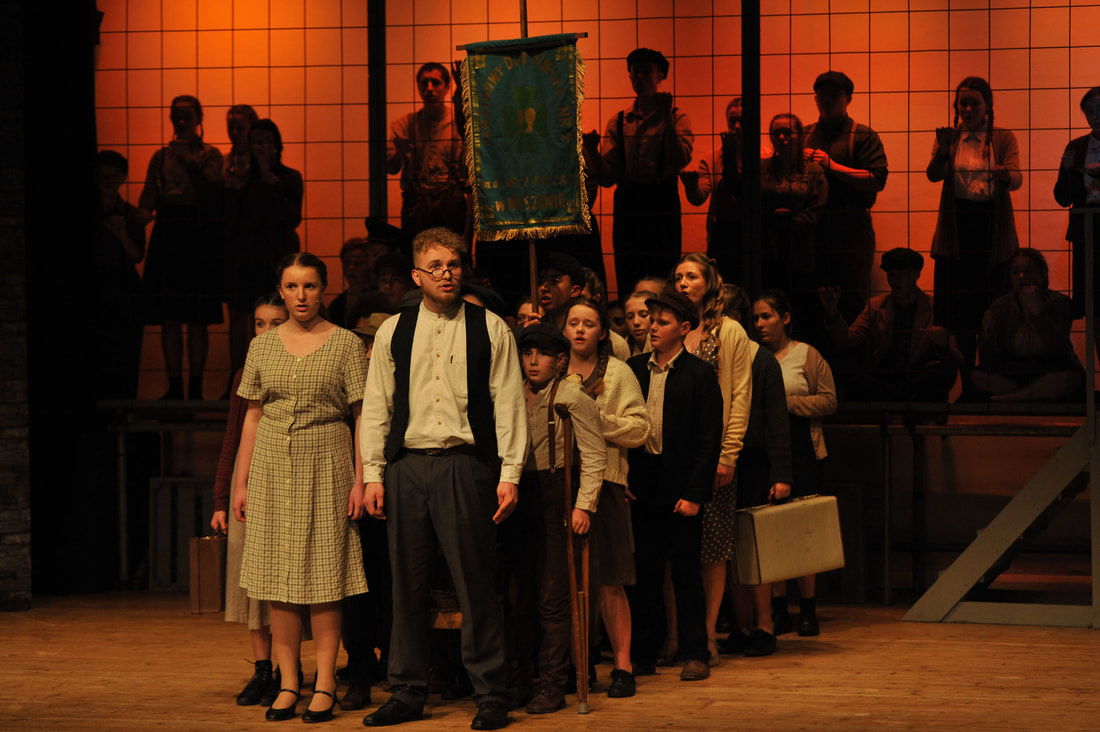Drama Department IntentWe believe that all students deserve a broad and ambitious Drama curriculum, rich in skills and knowledge of the theatre and performance processes to allow them to develop a love of the performance arts. The curriculum will encourage students to become confident and independent thinkers, who will be able to create original work and critically analyse professional and non-professional repertoire. Students will have an appreciation of their own work and that of others, always demonstrating respect and empathy. They will make progress in a positive learning environment that has high expectations, celebrates diversity and drives success embracing risk taking where students are supported to develop key transferable skills which prepare them for making a positive contribution in society and their life beyond school. Tell me and I will forget Show me and I will remember Involve me and I will understand (Chinese Proverb) Key stage 3
What do students study?
Drama is taught as part of the Core Curriculum at Key Stage 3. Every student in Years 7, 8 and 9 has a one hour lesson per week. High standards of work are expected and students develop self-awareness and self-confidence in an environment where success is recognised and valued. At KS3 lessons are heavily practical and involve a variety of stimulus material. The Year 7 syllabus is designed to give students the opportunity to acquire a fundamental understanding of key theatrical and performance concepts, including vocal projection, use of space, status, structuring a piece of theatre and performance objectives. The Year 8 course builds upon these skills whilst using theatre to approach contemporary or historical issues such as wartime evacuation and transportation. Lessons strike a balance between teacher-led workshop activities and greater creative freedom, thus ensuring that students have a wide range of skills upon which to draw when putting together a piece of theatre. In year 9 all of the skills acquired in the first two years are reinforced whilst introducing many new rehearsal techniques to create practical performances that prepare students for the rigour of GCSE. There are high expectations and through performance and evaluation, students will get accustomed to creating more developed and complex characters and dialogue, no longer relying on two-dimensional character types in their work. Drama enhances the cultural knowledge and personal development of the students in our care. Opportunities exist for students to take part in extra curricula activities which include performances, Sidmouth Youth Theatre, Workshops and many varied Theatre Visits. How are students assessed? At Key Stage 3, students are assessed for their ability to create, perform and respond. At the end of each topic they respond to their assessment by setting themselves a target to improve their work in one of these specific areas. They are encouraged to reflect on their input in the devising process, their ability to perform and to evaluate their work and the work of others. Key stage 4
WHO IS THIS COURSE FOR? Drama is an exciting, creative and challenging course designed for students to meet the demands of their future role as active citizens in employment and society in general, as well as for the possible further study of Drama. The ability to speak and act in public with confidence, think independently, write and communicate effectively, adapt to new situations, improvise on the spot, organise and collaborate in a team – these indispensable transferable skills get people jobs. A GCSE in Drama equips you with all these skills and more. Do you want to stand out from the rest? EXAM BOARD, COURSE CONTENT & ASSESSMENT DETAILS—AQA You will be working in groups in response to varied stimulus material to communicate ideas in dramatic form. You will study a specific theatrical text with the emphasis on performing and staging techniques. You will have the opportunity to study lighting, set design, sound, costume and props. You will experience live theatre and you may work with professional practitioners in a workshop situation. Throughout this course, you will be involved in many varied activities that test your skills in all related areas. You will be improvising, examining texts, designing, visiting theatres and working in groups. The emphasis is on individual strengths and interests. This drama course demands a high level of personal motivation and interest. Practical Assessment 60% of total marks This will involve the study and performance of two key extracts from one scripted play which are examined at the end of the course, and a group devised piece performed during the course and externally moderated. Part of the requirement will be to create a written devising log. The Written paper [1hour 45mins] 40% of total marks The written paper comprises three sections: Four Multiple choice questions based on Theatre Roles and specialist terminology Four questions based on an extract from a set text studied on the course. One two part question on a live production seen. WHAT CAN THIS COURSE LEAD TO POST 16? This GCSE provides an excellent foundation, preparing students for the transition to study Drama and Theatre A Level in the Sixth form and supports all university courses. FOR WHAT CAREERS WILL THIS COURSE BE USEFUL? Careers: · Where leadership and team work are essential skills. · Where the art of persuasion is sought and enterprise rewarded. · Where people skills and communication are vital. · Where skills are appropriate to the diverse requirements of the creative industries which is the biggest employer generating 90 billion a year to the UK economy. This includes all areas of Television, Film and Theatre, where performing, technical and creative ability are central to success. OTHER RELEVANT INFORMATION Important! If you want to do well in this course you will need to be committed to working outside lesson time. You will benefit from a department that celebrates excellent results. Key stage 5
Introduction Drama is a challenging and exciting A Level that provides opportunities for progression to many different courses in Higher Education. It is a distinct subject, complementary to other arts subjects, and is a useful qualification for a career in the media, entertainment and leisure industries. These industries generate 71.4 billion per year to the UK economy—generating £8 Million pounds per hour. Drama is also an asset in all areas of employment where people matter, eg, Law, Teaching, Police Service, Social Work, Caring, Journalism, Politics, Sales and Management. What do students study?
How are students assessed? A Level Drama & Theatre Studies : 3 Components Component 1: Drama & Theatre 40% of A level Written exam paper - 3 Hours - Study of 2 set texts [80 marks] Section A & B Answer a question based on the study of a play from list A & B. [55 marks] Section C- Answer a question about a piece of live theatre seen. [25 marks] Component 2: Creating Original Drama [Practical] 30% of A Level Devised Performance [60 marks]
Component 3: Making Theatre Performance [practical] 60% of A Level Presentation of an extract from a play [60 marks]
Comments are closed.
|
Access Octomono Masonry Settings
Subjects
All
|
- Home
-
About Us
- About our School
- Board of Governors
- Careers & Education Guidance
- Contact
- Equality
- Ethos and Values
- Exam Results >
- Hire of School Premises
- Links & Partnerships
- Ofsted Reports
- Our People
- Performance Data
- Policies
- Principal's Welcome
- Pupil Premium
- SEF & College Priorities
- Sidmouth College Way
- Ted Wragg Trust
- Vacancies
- Visitor Information
- Wellbeing at School
- Admissions
- Learning
-
Parents
-
Students
- Sixth Form
Useful links |
Navigate |
|
© Sidmouth College 2020 | Primley Road, Sidmouth, Devon EX10 9LG | Website design by Bright Blue C











